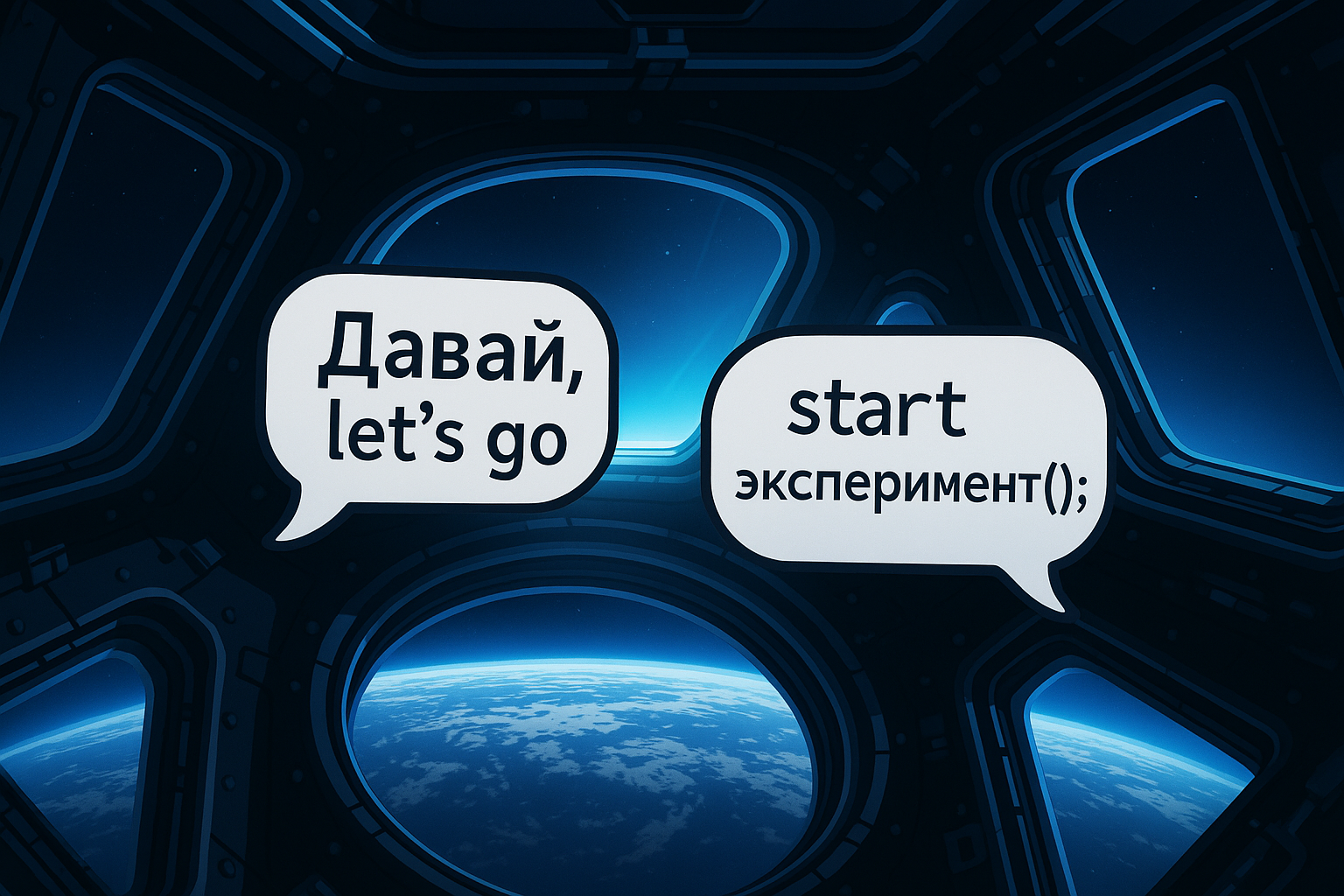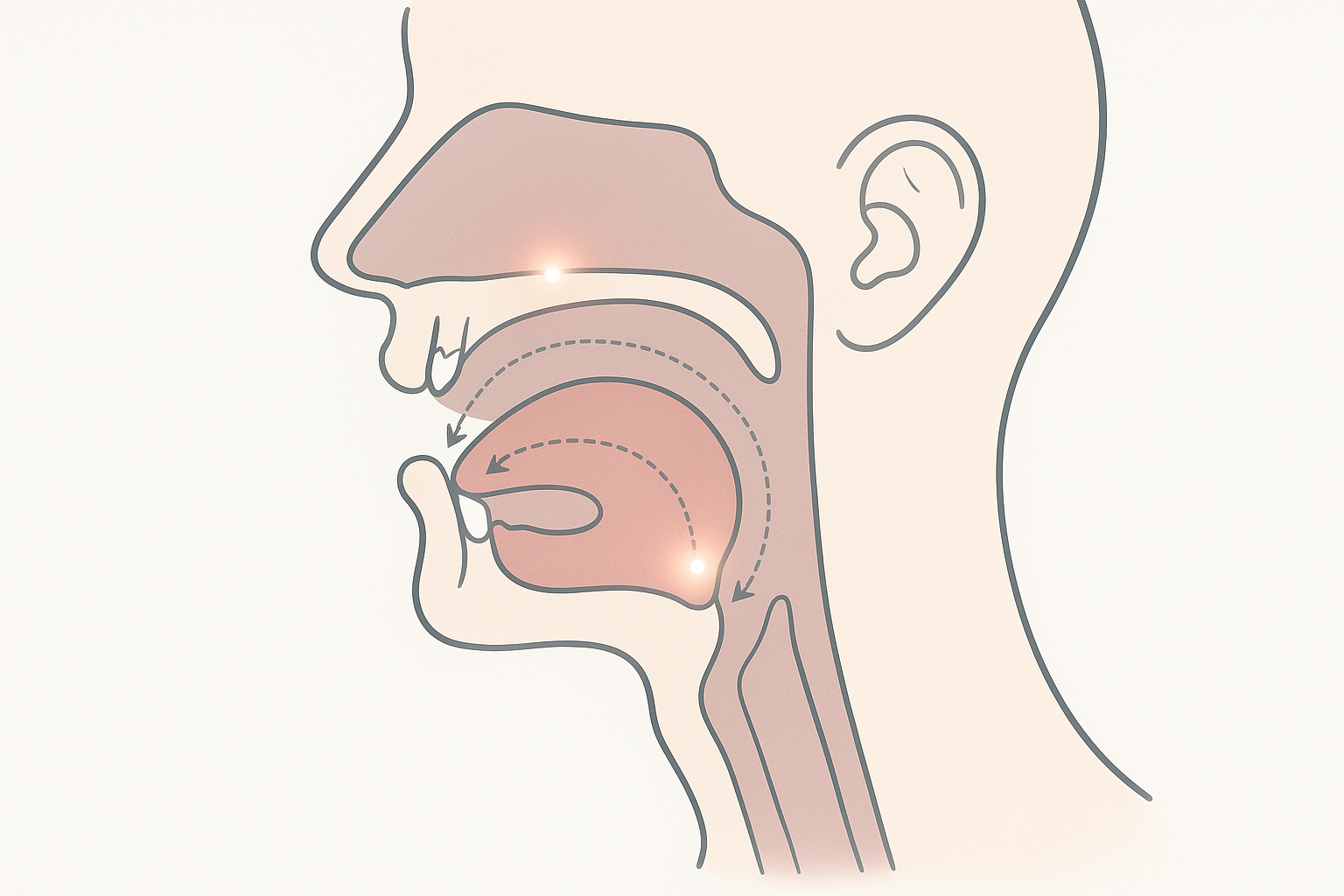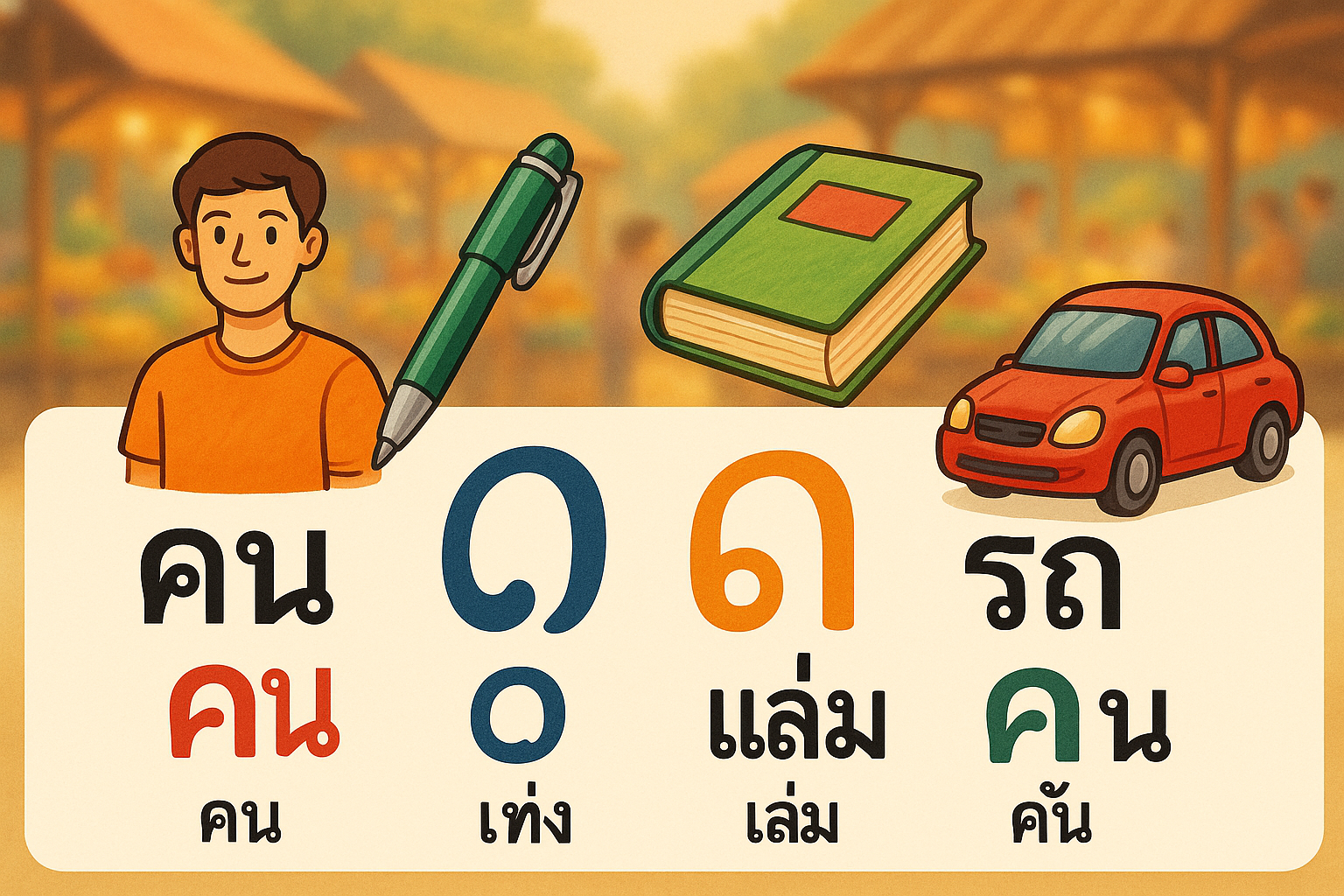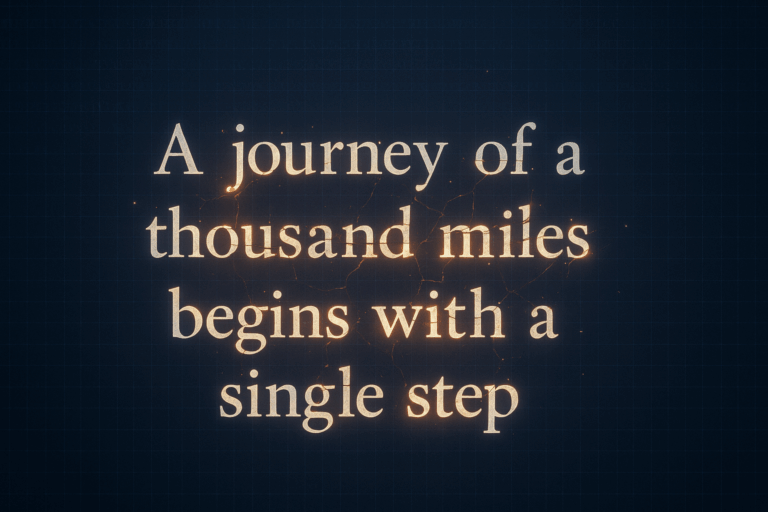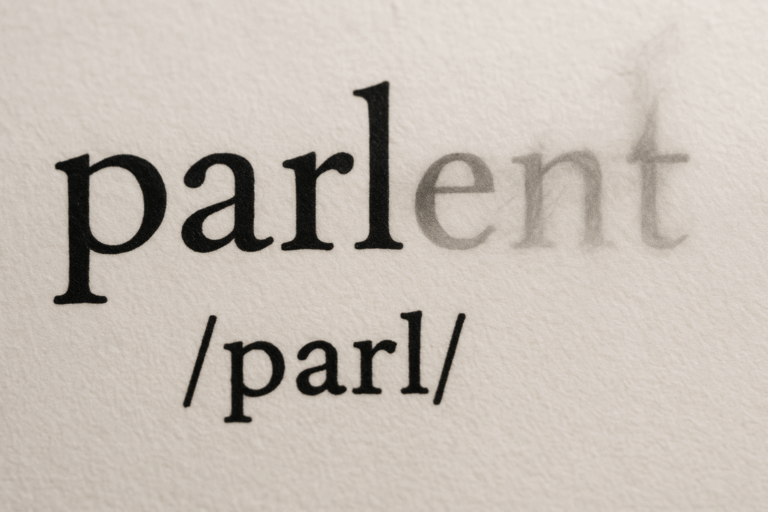Two hundred and fifty miles above Earth, hurtling through the vacuum of space at 17,500 miles per hour, lies humanity’s most ambitious outpost: the International Space Station (ISS). It’s a marvel of engineering and international cooperation, a place where a simple miscommunication isn’t just awkward—it can be catastrophic. To operate this floating laboratory, astronauts from different nations must communicate with flawless precision. Officially, the languages of the ISS are English and Russian. Unofficially, however, a third, unwritten language has emerged from the unique pressures of orbit: Runglish.
Runglish is not just a collection of slang words or accented speech. It’s a functioning pidgin language, a spontaneous and practical blend of Russian and English that has become the true lingua franca of the station. It’s a fascinating, real-time example of how language evolves under extreme conditions, forged in the crucible of space.
What is a Pidgin in Zero-G?
In linguistics, a pidgin is a simplified language that develops as a means of communication between two or more groups that do not have a language in common. It’s not anyone’s native language but is built for a specific purpose, borrowing vocabulary from one language and grammatical structures from another. Historically, pidgins arose along trade routes, in colonial plantations, or at busy ports.
The ISS is, in a sense, a modern-day port—a high-tech crossroads in the sky. Astronauts and cosmonauts, often with varying levels of fluency in each other’s native tongues, must work together on complex, time-sensitive tasks. Runglish emerged organically as the most efficient way to bridge the linguistic gap.
The Anatomy of Runglish
Runglish isn’t a random mishmash; it has a surprisingly consistent structure. It’s a hybrid that marries the vast technical vocabulary of English with the grammatical and phonological framework of Russian.
Russian Grammar, English Words
The most defining feature of Runglish is its use of Russian grammar to structure sentences filled with English technical terms. Russian is a highly inflected language, meaning words change form (using prefixes, suffixes, and case endings) to denote their grammatical function. In Runglish, English verbs are often “Russified” by adding Russian conjugational endings.
A classic example, documented by linguists and astronauts alike, is the Russified verb. A cosmonaut might say:
“Я review-ил процедуру.” (Ya review-il protseduru.)
Here, the English verb “review” has been given the Russian past-tense masculine suffix -ил (-il). The literal translation is “I reviewed the procedure,” but the construction is purely Runglish. It’s quicker and more cognitively efficient for a native Russian speaker to plug the necessary English noun or verb into their native grammatical template than to construct a grammatically perfect English sentence from scratch.
Other Russian grammatical features also dominate:
- Lack of Articles: Russian has no articles (“a,” “an,” “the”). Runglish sentences frequently omit them, as in “We need to check data file” instead of “We need to check the data file.”
- Flexible Word Order: Russian allows for more flexible word order than English. This flexibility often carries over into Runglish, with the emphasis placed on the most critical information, regardless of standard English syntax.
The Vocabulary of a Space Station
While the grammar is often Russian, the vocabulary is overwhelmingly English, especially when it comes to technology, science, and procedures. This is a direct result of NASA’s foundational role in the ISS program. Most of the hardware, software interfaces, and operational manuals were originally developed in the United States.
Therefore, words like “payload,” “module,” “interface,” “disconnect,” “software,” and “experiment” are mainstays of the Runglish lexicon. It simply makes no sense to translate a term like “data bus” into Russian when the corresponding button on the control panel is labeled in English.
The Social Dynamics of Speaking Runglish
Language is always more than just a tool for conveying information; it’s a social marker. On the ISS, speaking Runglish is a sign that you belong.
Reducing Cognitive Load
Life on the ISS is mentally and physically demanding. Astronauts are simultaneously scientists, mechanics, and test subjects. In this high-stakes environment, any way to reduce cognitive load is a welcome advantage. For a cosmonaut, conjugating an English verb with a Russian ending is faster and requires less mental energy than recalling the correct English past tense. For an astronaut, adopting a Russian-inflected phrase is a clear, unambiguous shortcut. Runglish is, above all, the language of efficiency.
Building In-Group Identity
Runglish serves as a powerful bonding agent. It’s the shared dialect of the select few who have experienced life in orbit. It transcends national identities—American, Russian, European, Japanese, Canadian—and creates a new, shared identity: that of a spacefarer. As Canadian astronaut Chris Hadfield noted in his book, An Astronaut’s Guide to Life on Earth, these linguistic shortcuts become part of the crew’s shared culture, reinforcing camaraderie and teamwork.
It’s an insider’s language, a linguistic handshake that says, “We’re in this together.”
A Modern Linguistic Laboratory
The ISS provides linguists with a unique, contained environment to study language contact in real-time. Unlike historical pidgins, which we can often only study through written records centuries later, Runglish is a living, breathing language that can be observed as it forms and is used daily.
It demonstrates a fundamental truth about human communication: we are brilliant linguistic adapters. When faced with a need to communicate, we will create the tools to do so, borrowing, blending, and innovating until a functional system emerges. Runglish shows that this process isn’t just a relic of the colonial past; it’s an ongoing part of the human experience, happening right now in one of our most futuristic endeavors.
As humanity prepares to venture further into the solar system—to the Moon, Mars, and beyond—the story of Runglish offers a valuable lesson. Future missions will likely be even more international, perhaps incorporating Mandarin, Hindi, or other languages into the mix. The linguistic landscape of space will only grow more complex. But if Runglish has taught us anything, it’s that where human ingenuity and the need for connection meet, a new language is waiting to be born.
